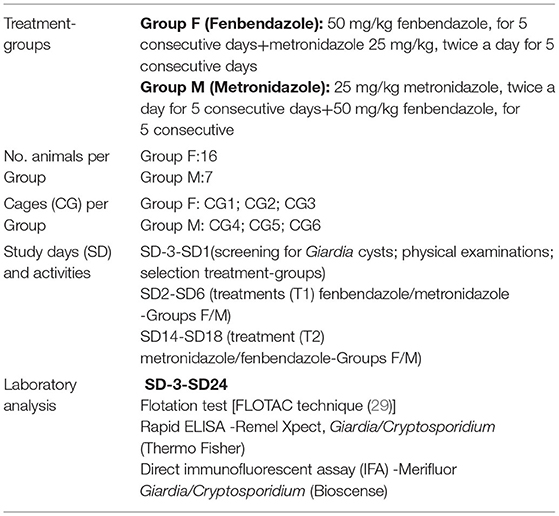Animal-safe fenbendazole for sale for parasite removal purposes.
Discover Everything About Fenbendazole and Its Role in Modern Medicine
Fenbendazole, a medicine originally designed for vet usage, is getting traction in contemporary medication. Its ability to disrupt microtubule dynamics mean a possible function in cancer cells treatment. Preliminary research studies suggest it might improve basic treatments. As passion grows, the implications of fenbendazole's applications expand beyond oncology. This questions regarding its broader restorative potential. What could this indicate for future clinical techniques?
Understanding Fenbendazole: Mechanism of Action

Along with its action on microtubules, fenbendazole additionally influences the sugar uptake devices within the bloodsuckers. By depriving them of necessary power resources, it additionally jeopardizes their feasibility. This multi-faceted device of activity makes fenbendazole a potent option in combating different parasitic infections. Its safety and security account in pets has likewise added to its extensive usage, allowing veterinarians to efficiently handle parasitic conditions while reducing unfavorable impacts on the host.
Historical Usages of Fenbendazole in Vet Medicine
Given that its intro in the late 1970s, fenbendazole has played a critical role in veterinary medicine, primarily as a therapy for different helminth infections in animals. This broad-spectrum anthelmintic has been efficient against a variety of intestinal bloodsuckers, consisting of nematodes and cestodes, making it a critical device for veterinarians. Fenbendazole's low poisoning profile and convenience of administration have added to its appeal in treating animals, horses, and buddy animals alike.
Throughout the years, fenbendazole has actually been made use of in various formulas, such as powders and granules, enabling adaptable dosing choices. Its efficiency versus immune parasite strains has made it a recommended selection in managing parasitical infections. fenbendazole for sale. Additionally, fenbendazole has been included right into deworming programs, dramatically reducing the prevalence of helminth-related diseases in animal populations. On the whole, its historic importance in vet medicine underscores fenbendazole's significance in keeping pet wellness and efficiency.
Emerging Research on Fenbendazole in Cancer Therapy
Research has begun to explore the prospective applications of fenbendazole beyond its well-known role in vet medicine, specifically in the area of oncology. Preliminary researches have actually indicated that fenbendazole might have anti-cancer residential or commercial properties, triggering passion from scientists and clinicians alike. Laboratory experiments have actually demonstrated its capability to hinder the growth of various cancer cell lines, consisting of those connected with intestines and pancreatic cancers. The medicine appears to influence mobile procedures such as microtubule dynamics, which are crucial for cellular division and spreading.
Moreover, some unscientific proof recommends that fenbendazole may enhance the performance of traditional cancer therapies, potentially leading to boosted individual results. However, while these findings are appealing, strenuous clinical trials are needed to fully comprehend its efficiency and safety in people. Overall, the Visit This Link arising research on fenbendazole in cancer therapy highlights the demand for additional examination into its devices and healing capacity.
Ramifications for Future Medical Applications and Research
As passion in fenbendazole's prospective restorative applications grows, its effects for future clinical research study and treatment important site strategies are becoming significantly considerable. Researchers are discovering its mechanisms of activity, specifically regarding its anti-cancer homes, which might bring about novel treatment techniques. The compound's capacity to disrupt mobile processes in cancer cells recommends a demand for detailed clinical tests to develop ideal dosing and efficacy.
In addition, fenbendazole's low expense and existing vet approval might facilitate rapid shifts right into human medication. By addressing safety and efficacy in varied populaces, fenbendazole could emerge as a functional healing representative, eventually reshaping therapy paradigms in modern medication.

Verdict
Finally, fenbendazole, originally developed for vet use, shows substantial potential in contemporary medication, particularly in cancer cells therapy. Its ability to interfere with microtubule dynamics might offer new methods for improving conventional treatments. As study unravels, the ramifications of fenbendazole could prolong past oncology, possibly affecting neurodegenerative problems and various other diseases. Continued investigation into its safety and security and effectiveness might lead the way for innovative therapeutic strategies, highlighting the need for Go Here a wider understanding of this compound's abilities.